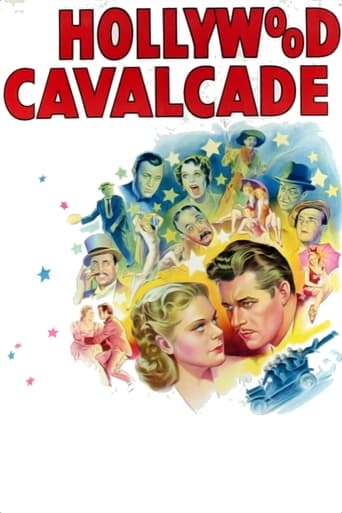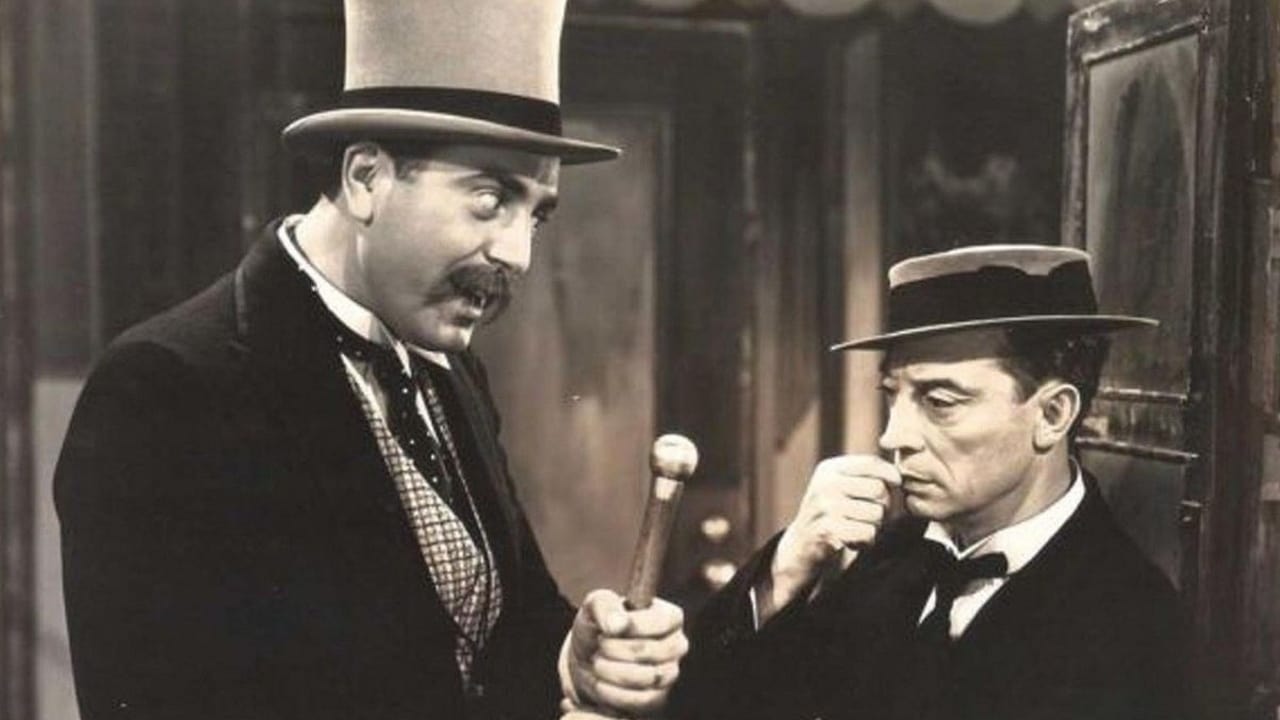JohnHowardReid
Copyright 13 October 1939 by 20th Century-Fox Film Corp. New York opening at the Roxy: 13 October 1939. U.S. release: 13 October 1939. Australian release: 1 February 1940. Copyright length: 9,048 feet. 100½ minutes. Australian length: 8,739 feet. 97 minutes.SYNOPSIS: Hollywood director signs ingénue, turns her into a star.NOTES: The scene from The Jazz Singer is not a clip from the Warner Bros, film but a re-enactment which must have delighted Jolson no end as here he actually gets to sing "Kol Nidre". In the original his voice was dubbed by Cantor Joseff RosenblattCOMMENT: Alice Faye's first Technicolor film. The photographers have treated her most kindly and director Cummings has allowed her numerous attractive close-ups. She looks great in her Herschel costumes too. And her acting is nothing short of utterly entrancing. Unfortunately, however, Alice doesn't get to sing a single note. It seems that three songs (including "Whispering" by John Schonberger, Richard Coburn and Vincent Rose) were recorded and shot by Alice. But they are no longer in the film. Presumably they were deleted merely to shorten the running time.What is worse is the fact that the script for Hollywood Cavalcade - for all its good intentions - is not really worthy of her talents.
Don Ameche comes over as a boringly brash and unendingly garrulous lead, while the rest of the cast is strictly second-rate. Yes, I include Al Jolson hamming it up with his "Kol Nidre" and Buster Keaton unfunnily throwing custard pies. Even the Keystone Cops lack the verve, the vitality, the split-second timing of the originals.
MartinHafer
You can't take the story in "Hollywood Cavalcade" as gospel. It is a story about the silent film era and while it has many parallels to real people and events, so much of it is fictionalized that it is NOT a true history of early Hollywood. Now this isn't a complaint--just a warning for the viewer not to believe everything in the story. So, while Don Ameche's character may seem a lot like Mack Sennett and Alice Faye's may seem a lot like Mable Normand, they are, in fact, fictional. And, while you do see a lot of old silent comedians (such as Buster Keaton), the stuff they do often has little to do with their silent careers.The film begins with an excited film maker (Ameche) discovering a talented stage actress (Faye). They begin making films in the 1910s and quickly become a sensation making comedies--and later, dramas. She is devoted to the man BUT he only thinks about making movies and seems to have no interest in romance. When she tires of this and finds another man, her career and that of her mentor are in for some rocky times.What makes this film really unique is that Faye does NOT sing in this one! Instead, there's a bit of comedy, quite a bit of drama and some romance. Another unique thing is that this 20th Century-Fox film actually talks about a film from another studio ("The Jazz Singer" from Warner Brothers as well as mentions of Vitaphone early in the film)--something unheard of at the time. And, it's also unusual because it's Alice Faye's first Technicolor film. But, most importantly, while the film has a lot of formula (such as the very familiar unrequited love theme), it is quite entertaining and worth your time.Oh, and by the way, although pie fights are a HUGE part of the film, in fact they were very, very rarely done in films. Apart from a Laurel & Hardy film ("The Battle of the Century") and a few sound films (such as "The Great Race" and a Three Stooges short), there aren't that many pie fight films--perhaps only a half dozen or more in all. And, our perceptions that slapstick films abounded with the fights is probably due to "Hollywood Cavalcade".
Gblakelii
The plot: Michael Linnett Connors has done everything in films but direct, and is looking for his 1st big chance. He discovers Molly in a play and at once knows she will be a big film star. He signs her to a contract with the stipulation that he must direct. The producer agrees and their big time careers are under way. What follows is a recreation of the silent film era and early sound movies with great emphasis on comedy. And, oh yes, there's romance, and a little sadness too. The performances by Don Ameche and Alice Fay are top notch. The music is a real plus too with some old familiar tunes heard. Lots of DVD extras as well in this restored version released in 2008. It must be emphasized that this movie is a story 1st, not just a tribute to silent films. Later years would bring similar films such as, Singin' in the Rain(1952) & Dick Van Dyke-Carl Reiner's, The Comic(1969). What is special about this film, though, is recreating silent movies in 1939. We see portions of them as the cinema audience would in that bygone era(although some sound effects are included)in glorious b&w, while the rest of the movie is in pristine color. One of the greatest in the silent era, Buster Keaton, who at this point was on an uphill climb, is used superbly in 2 silent film recreated scenes and he is on the top of his game! It is said that he had some input on his scenes as well. But the real reason to watch the movie, if your a motion picture history fan, is that beyond everything else, Hollywood Cavalcade is Mack Sennett's film legacy. It doesn't take a genius to realize this movie is a "positive" reworking of Mack Sennett's and Mabel Normand's life. The character Michael "Linnett" Connors is Mack Sennett, whose real name was Michael Sinnott. And Molly, of course is Mabel. Sennett had the pie throwings, the bathing beauties and Keystone Cops. He worked with Buster Keaton, Ben Turpin(cameo), Roscoe "Fatty" Arbuckle(body double) and fell in love with his leading lady. Not only all that, but Sennett was technical adviser for this film and appears in it as well. As most film viewers today prefer sound features, those who were associated with short subjects and silents are left out to pasture. As Mack Sennett fell into that category, it is fortunate that there is Hollywood Cavalcade! Sennett was of course very instrumental in the evolution of comedy in movies. His career started in 1908 as an actor, then writer, director & producer. He semi retired in 1935 with about 500 films to his credit. He had worked with the best, such as Charlie Chaplin, Gloria Swanson, Bing Crosby, W.C. Fields, Keaton, Harry Langdon, Arbuckle, and even Roy Rogers(in Way Up Thar).As film comedy is an extremely difficult path to continue for an entire career, Mack played it wise & did only selective work for the next 25 years. In 1931 he had received an academy award in the short subject category, and another in 1937 for a lifetime of work. In the 1940's his presence was still felt, e.g. Here Come the Co-Eds(1945)where a recreation of the oyster soup scene used in Mack's Wandering Willies(1926)is done. In 1947, The Road to Hollywood, used some of Sennett's Crosby films. 2 years later brought some nostalgia with the film Down Memory Lane in which he participated. With his knack of always associating with the right people, a guest role with the eternally popular Lawrence Welk & his radio show came about later in the year. 1950 brought a re-release of his greatest triumph, Tillie's Punctured Romance(1914) with sound. In 1952 he was honored on TV's, This Is Your Life, then his autobiography, The King of Comedy(1954), which is a great companion piece to Hollywood Cavalcade, was published. 1955 brought a more concrete association with Abbott & Costello, as he had a cameo in A&C Meet the Keystone Kops. Finally in 1957, another tribute with the compilation film, The Golden Age of Comedy. So when you watch Hollywood Cavalcade it is the legacy of a motion picture pioneer. In the film at the banquet scene the camera pans over the guests at a long table. As we get to the silver haired Mack, he alone turns his head to the camera as if to say, "here I am!". When he rises to give a speech a short while later, he is at his most subdued, underplaying the words given him as if to mentally convey, "I know my influence on comedy will never end, but will people forget Mack Sennett the individual. Maybe this movie will help."
bobc-5
It's 1913. A studio prop boy spies the actress who is going to become Hollywood's next great movie star and he's the director that's going to make it happen. After inventing pie throwing and the keystone cops, his dream comes true. Being completely absorbed in his film-making, however, he fails to notice that he is losing his leading lady to another man. Several over-budget flops later, he is known as nothing more than the director who turned down Rin-tin-tin. Fortunately for him, the loyal and compassionate residents of Hollywood are untainted by ambition and ego. He'll be okay as long as he still has his friends.This movie starts out as a mad-cap comedy typical of the time period, and in the opening scenes it holds its own with the best of them. It has a playful lack of self-consciousness which is sorely missing in most of today's comedies. Shortly into the film, however, it moves away from this mode of comedy and instead attempts to entertain us using the films within the film. These are silent slapstick comedies, well done but nothing out of the ordinary, and they go on for much longer than is necessary for any audience which has seen the originals. Upon returning, the film takes a dramatic turn. It's well written and the cast does an excellent job of making the transition, but the movie really should have decided from the beginning what it was going to be.By the end of the film, it has transformed once again - this time into a paean to the glitter of Hollywood. The small town of Los Angeles has grown up into the city which makes the movies that entertain the whole world.In spite of its promising beginnings, this film has not aged particularly well. Nevertheless, it does have some strong scenes, a certain nostalgic appeal, and an entertaining sub-text about the people who made it and the audiences it was made for.


 AD
AD



